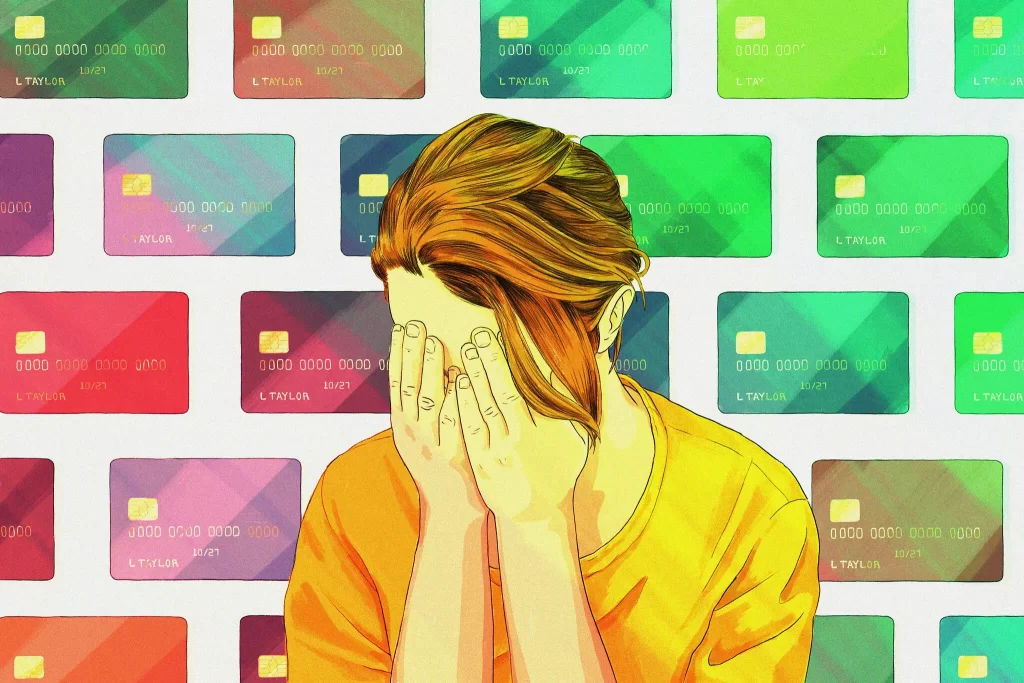
The limited edition SpongeBob Funko Pop was calling to Jason Grioua.
Mr. Grioua had just graduated from college and decided to splurge on a few collectible figurines, inspired by characters from television shows and video games.
He spent about $100 this summer on that SpongeBob SquarePants and figures of a few other characters he likes, including one from an anime show and another from his favorite video game, Overwatch.
But then the second thoughts crept in. He was feeling uncertain about the economy, and gas prices, along with prices for nearly everything else, were going up. Before long, Mr. Grioua, 23 and a news writer at WSVN 7News in Miami, was regretting the outlay.
“Every dollar would help right now knowing that I could instead put it toward savings or my Roth I.R.A.,” he said. “Long-term, inflation has definitely made me have a bit of a buyer’s remorse on items that are not exactly essential.”
Not exactly essential could describe many of the purchases currently taking up space in our closets or on our credit card statements. But at a time when inflation is still nagging, some analysts are predicting at least a mild recession next year, and holiday shopping is in full swing — it’s prime season for buyer’s remorse.
Data from Bank of America showed spending on credit and debit cards was up 4 percent in November compared with a year earlier. The average credit card balance among U.S. users of Credit Karma, a credit score tracking service, is up 20 percent, and consumers’ credit scores have fallen by about 12 points since March, when the Federal Reserve first started raising interest rates, according to data from the company. The central bank raised them again by half a percentage point on Wednesday.
Inflation has been a worry, but business was brisk on Black Friday, with eager shoppers lining up outside stores to snag deals. Despite Americans’ anxieties about the economy, Adobe Analytics, which tracks online sales, estimated that online spending this holiday season would increase by 2.5 percent compared with last year’s.
Jamie Wagner, an assistant professor at the University of Nebraska Omaha and the director of its center for economic education, urged consumers to try to think ahead.
“Whenever you make a purchase that’s unplanned, lots of things can happen,” she said. “It takes away some of your choices in the future.”
Splurges that stung
Just before the pandemic descended, Suzanne Lawler of Pacifica, Calif., made a purchase that didn’t seem so bad at the time. Ms. Lawler, a retired legal manager, had just sold an item she had inherited, pocketing about $90,000. Then, on a trip to New York City with a friend, she “fell in love” with a Celine handbag at a luxury consignment shop in SoHo. It was a stunner, she thought, and in orange python, it was one of the team colors of her beloved San Francisco Giants. The price: $3,000.
But Ms. Lawler, 68, hasn’t used the bag — and she gets upset whenever she goes into the closet where she keeps it. Her attempts to resell it have failed — either resellers reject items made of real python, or individual buyers don’t want to pay her asking price.
But she’s luckier than most. “I don’t need the money,” she said. “If I had donated it to my favorite charity or spent it on something a little bit more appropriate and in line with my values, I would have felt much better. Every time I go into that closet, I feel like crap.”
Patti Henry didn’t intend to have multiple unused plane tickets gathering dust for months. The pandemic forced her to cancel one trip, and when people could fly internationally again, Ms. Henry, 60, a physical therapist in Portland, Ore., “went on a travel binge” and bought tickets to more locales.
There was the $500 ticket to Mexico City, a trip she had to postpone when the Covid outbreak grounded flights. Then there were two tickets, totaling $900, to Tahiti for spring break — a trip she also had to cancel. After that: A plan for a jaunt to Peru, costing $2,000, that didn’t pan out. Although she finally got to take the Mexico City trip, Ms. Henry is stuck with a number of airline credits that she has struggled to use for a variety of reasons: scheduling conflicts, communication issues with some of the smaller airlines she booked with — and most painfully, price increases that have made it hard for her to bring her whole family of four along for the ride.
“Everything has just gotten so expensive. It’s just absolutely ridiculous,” Ms. Henry said. She said she would continue to rebook and eventually use the tickets and was hoping for refunds for some of them.
Avoiding impulse buys
Although buyer’s remorse can be impossible to avoid entirely, there are ways to avoid overspending on things you just don’t need.
Justin Pritchard, the owner of Approach Financial Planning, a retirement planning firm in Montrose, Colo., said it was important to “put a little bit of space” between wanting an item and buying it. He had some suggestions for how to be more mindful about your spending:
- Make automatic deposits into different savings accounts. Mr. Pritchard called this the “pay yourself first strategy.” These deposits leave you with less available cash in your checking account that you might be tempted to spend.
- Write a Post-it note to stick on your credit card that lists your spending priorities. Instead of a list, the note might say simply, “pause” or “slow down,” Mr. Pritchard said. This reminder allows you to rethink how you are spending your money and redirect your spending toward your goals.
- Delete your credit card information from your Amazon account. This will add a barrier before you check out — you’ll be required to enter your credit card information manually, forcing you to pause and think about the purchases more carefully.
- Use a list when you go shopping, both in person and online. This can help you be thoughtful about your purchases and not buy items that fall outside of your main spending priorities.
“Retailers, both online and in brick and mortar, are really skilled,” Mr. Pritchard said. “They make an Olympic sport out of making you want to buy things you don’t need.”
While a number of factors might lead someone to make an impulse purchase, a big one is stress. Dr. Wagner said a lot of people are emotional buyers who shop to celebrate or to soothe themselves when they are feeling down.
To avoid that trap, she suggested thinking about the items for a few days and seeing if the desire for them lasts. Much like people are advised not to go grocery shopping when they’re hungry, Dr. Wagner said, it is best to avoid shopping when you are processing strong feelings.
“Removing the emotions and the impulses can be really helpful,” she said.
























